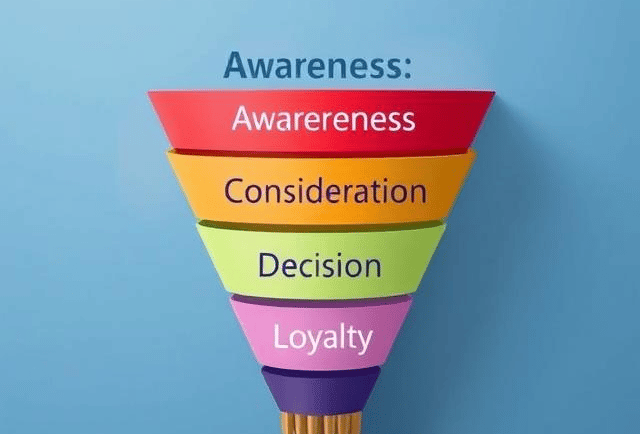Digital Marketing Funnel
Understanding the Marketing Funnel in Digital Marketing
2/14/20252 min read


Understanding the Marketing Funnel in Digital Marketing
In today's fast-paced digital world, businesses must have a well-structured approach to convert potential customers into loyal ones. This structured journey is represented by the marketing funnel, a crucial model in digital marketing that guides prospects through various stages before they make a purchase. Understanding and optimizing each stage of the funnel ensures that businesses effectively attract, engage, and convert their target audience.
What is a Marketing Funnel?
A marketing funnel is a visual representation of the customer journey, from the moment they become aware of your brand to the point where they make a purchase and beyond. It helps businesses strategize their marketing efforts to move prospects seamlessly from one stage to another.
Stages of a Digital Marketing Funnel
The marketing funnel consists of different stages that reflect a customer’s mindset as they interact with a brand. These stages are commonly divided into Top of Funnel (TOFU), Middle of Funnel (MOFU), and Bottom of Funnel (BOFU).
1. Awareness (TOFU – Top of the Funnel)
This is the stage where potential customers first discover your brand, product, or service. The goal is to attract as many relevant users as possible. Key Strategies:
Content Marketing (blogs, videos, infographics, etc.)
Search Engine Optimization (SEO)
Social Media Marketing
Paid Ads (Google Ads, Facebook Ads, etc.)
Influencer Marketing
2. Interest & Consideration (MOFU – Middle of the Funnel)
At this stage, users are aware of your brand and are evaluating whether your product or service is the right fit for their needs. Key Strategies:
Email Marketing & Newsletters
Retargeting Ads
Webinars & Case Studies
Customer Testimonials & Reviews
Comparison Articles
3. Decision (BOFU – Bottom of the Funnel)
Here, potential customers are ready to make a purchase decision. They need a final push to convert. Key Strategies:
Discounts & Limited-Time Offers
Product Demos & Free Trials
Personalized Email Follow-ups
Strong Call-to-Action (CTA)
Live Chat & Customer Support
4. Loyalty & Advocacy
The funnel doesn't end after conversion. Retaining customers and turning them into brand advocates ensures repeat business and referrals. Key Strategies:
Loyalty Programs
Personalized Customer Support
Referral Marketing
Engaging Social Media Communities
Why the Marketing Funnel Matters in Digital Marketing
Better Customer Understanding – Helps businesses map out the customer journey and identify areas for improvement.
Targeted Marketing Efforts – Enables businesses to use the right strategies at the right stage.
Improved Conversion Rates – Optimizing each stage leads to better engagement and higher conversions.
Customer Retention – Ensures that businesses not only acquire customers but also keep them loyal.
Optimizing Your Digital Marketing Funnel
Use analytics to track customer behavior and identify drop-off points.
Personalize marketing campaigns based on user preferences.
Ensure a seamless user experience across websites, mobile apps, and social platforms.
Implement A/B testing to refine strategies.
Invest in automation tools for email marketing, lead nurturing, and customer engagement.
Conclusion
A well-structured digital marketing funnel is key to attracting, nurturing, and converting leads into long-term customers. By understanding the different stages and implementing the right strategies at each step, businesses can optimize their marketing efforts for better engagement and increased revenue. Whether you’re a startup or a large enterprise, mastering the marketing funnel can be a game-changer in your digital marketing success.
Vyom Systems Pte Ltd.
Innovative technology for your business growth.
sales/support
info@vyomsystems.com
+65-8363 4041
© 2025. All rights reserved.
